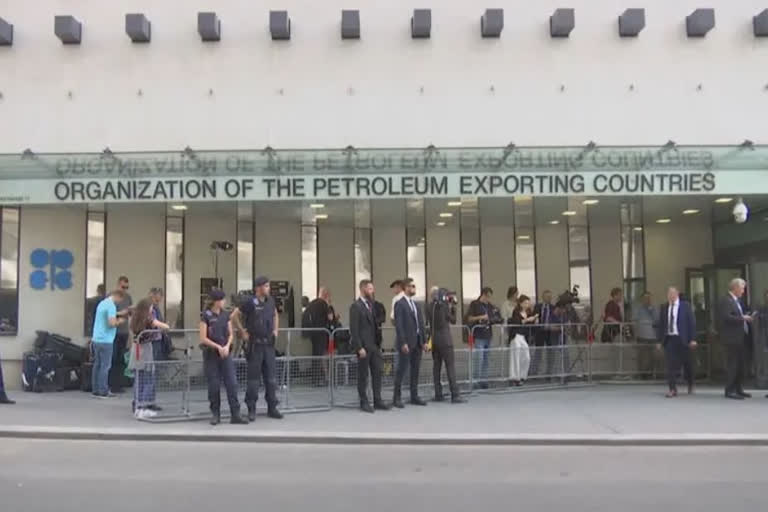: The leaders of OPEC and its oil-producing allies are deciding Wednesday how much oil to release while Russia's invasion of Ukraine rattles markets, reshapes alliances, kills civilians and sends the price of crude skyrocketing. The OPEC+ coalition of oil producers made up of OPEC members led by Saudi Arabia and non-cartel members led by Russia is weighing whether to increase oil production by 400,000 barrels per day in April.
Since July, the coalition has been adding that amount of oil each month to gradually restore deep cuts to production made early in the coronavirus pandemic when demand for fuel plummeted. People have been driving and flying more as COVID-19 restrictions have eased in parts of the world, but the amount of oil on the market hasn't kept up with demand.
Both U.S. and international benchmark crude oil pushed past USD 100 a barrel again Wednesday as investors worried about the invasion by Russia, one of the world's largest energy suppliers. While the coalition of oil-producing nations can benefit from high prices, the decision-makers will be walking a fine line, because high energy prices can backfire and push oil-consuming economies their customers into recession.
The fallout from Russia's invasion of Ukraine will have a huge impact on the OPEC+ meeting, being held online. Participating nations must keep in mind that the situation could cause a global recession, as could high oil prices, said Amy Myers Jaffe, research professor and managing director of the Climate Policy Lab at Tufts University. That would send demand for crude plummeting again.
It changes the outlook of uncertainty under which OPEC normally makes its decisions, Jaffe said. You can't do it based on your oil and gas supply and demand forecast. You also have to forecast geopolitical risk, you have to think about whether there's going to be sanctions, so you have to consider a wider range of issues." Before Russia's invasion of Ukraine, the International Energy Agency asked OPEC+ to boost production beyond its planned increase, due to tight global oil supplies.
